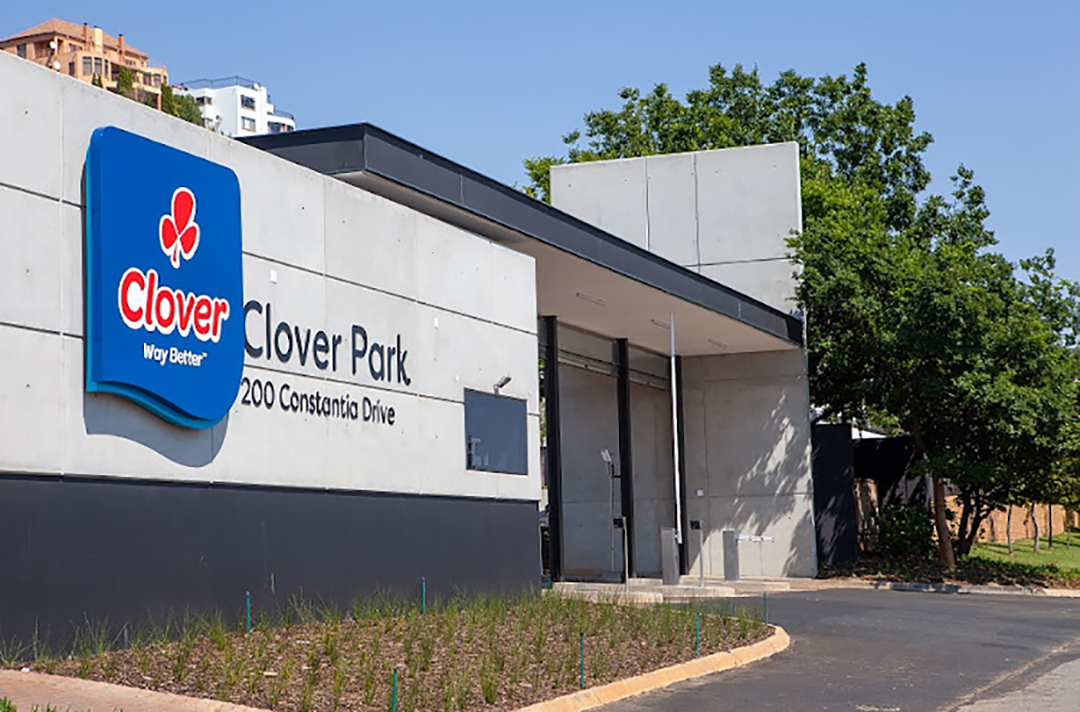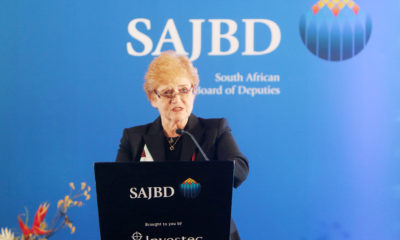
News

Clover strikers and BDS continue milking anti-Israel rhetoric
Published
2 years agoon
By
Nicola MiltzThe protracted Clover strike, which started as a local wage and retrenchment dispute in November, has grown into a full-blown anti-Israel hate fest.
In its third month, hapless striking workers at Clover have been spurred on by the unions that support them and the anti-Israel lobby intent on hijacking the dispute for its own political agenda.
Said Professor Karen Milner of the South African Jewish Board of Deputies (SAJBD), “The Boycott, Divestment, Sanctions [BDS] movement is unashamedly using a labour dispute to try and score petty points against Israel.”
BDS clearly doesn’t have the interest of the workers at heart, Milner said.
“Rather, it’s attempting to exploit them and prey off them for its own narrow interest of bashing Israel. As is always the case when BDS believes it’s not getting its own way, it ups the anti-Israel rhetoric.”
Workers have been picketing outside Clover factories and plants as well as other key points as the strike intensifies and hostilities between Clover management and workers and unions escalates.
Last week, striking workers represented by their unions and joined by anti-Israel activists marched in Johannesburg demanding that the company halt retrenchments and wage cuts.
They took their protest to the Israel Trade and Economic Office as part of a national and international day of action against the dairy producer.
The South African Federation of Trade Unions and several affiliates including, the Food and Allied Workers’ Union and the General Industries Workers’ Unions of South Africa (GIWUSA), and anti-Israel activists organised the day of action in solidarity with Clover workers.
Unions are calling for a boycott of Clover products to protest against restructuring and loss of jobs.
Clover management has said the decision to restructure was taken in the light of difficult trading conditions.
Among many demands, the workers are insisting that the company stop plans for further retrenchments and reinstate all workers. They also want it to be independent of the Israeli Central Bottling Company (CBC). Clover was acquired in 2019 by a consortium called Milco SA, which is led by CBC. CBC is an Israeli-based manufacturer and distributor of soft drinks, dairy products, and alcoholic beverages. Calls have also been made for nationalisation of the company.
GIWUSA President Mametlwe Sebei said working conditions and the general treatment of workers had worsened since Milco bought Clover.
“Your enemy is the enemy of the Palestinian people. The brutality you are experiencing under the Milco dictatorship isn’t new to Palestinian people who are subjected to the vile system of colonialism, oppression, and brutality under the Israeli regime,” Sebei said while addressing a protesting crowd.
Clover has said it had “explored all possible avenues to minimise retrenchments”.
In a statement, the company said retrenchments were “necessary to enhance Clover’s resilience for the benefit of its collective stakeholders”. The company “had been subject to a difficult trading cycle for several years, where economic growth has been poor, costs have generally been rising above inflation, and consumer spending has been subdued. COVID-19 has added to these pressures and the uncertainty faced.”
Meanwhile police have opened a murder docket following the death of Fidelity security guard Tshephe Molatsi who was killed during one of the protests. According to Clover management, Molatsi was escorting a Clover truck when his car was intercepted by striking workers and he was killed.
Steven Velthuysen, Clover group manager: legal and secretarial, said the violence of the attack “wasn’t industrial action but murder” adding that the company had been granted an interdict against the unions to prevent violence, but this was allegedly ignored.
He told Moneyweb last week that the strike, which started as a wage and retrenchment dispute, had become politicised. “This dispute has now reached a level where they politicise the labour issues by taking aim at our shareholders and disseminating a lot of misinformation in the market.”
“It’s unfortunate that in a wage and retrenchment dispute, the shareholders are now being pulled into this dispute, and it’s becoming an Israel/Palestinian-politics issue that’s being raised by all the groups.”
He told GroundUp that Clover had explored “all possible avenues” to minimise retrenchments, but trading conditions and poor economic growth had made things difficult.
“We embarked on restructuring as a last resort. Our business was materially affected by the COVID-19 pandemic, and we had little – if any – choice in the decision we made, which wasn’t made lightly. We cannot and will not reverse our decision if we are to run an economically viable business,” Velthuysen said.
The company said Milco SA had made a “major cash investment in the business” which had enabled it to prevent further job losses.
Leon Louw, the president of the Free Market Foundation, told the SA Jewish Report that BDS had “successfully hijacked” a domestic labour matter to promote antisemitism. “BDS is abusing the workers and unions by injecting its antisemitic agenda where it has no relevance,” he said.
“The Jewish/Israeli connection is clearly irrelevant, and concocted to serve antisemitic agendas. The issue is entirely business economics.
“Directors and managers don’t sit around ruminating over political treatises about nation states, post-apartheid South Africa, imperialism, and opportunities for racist discrimination. They have no time for that, and any such indulgence would come at the expense of profit and business opportunities,” Louw said.
“All they’re interested in is precisely the same as what every entrepreneur, white or black, Jewish or Muslim, rich or poor, philanthropic or greedy, racial or non-racial is concerned about: profit.”
He said Clover was making what it believed to be optimal business decisions.
“Were it to make any other kind of decision, it would go out of business, and instead of some workers losing jobs, all would,” Louw said.
Furthermore, he said foreign investors must be free to run businesses as businesses and not be expected to serve other interests, “otherwise they are free to invest in more than 200 other countries that welcome them”.
“What unions ought to be demanding of government is to create a maximally seductive investment and employment environment. That would drive wages and working conditions upwards towards the best in the world.”
While retrenchments were a “ghastly” experience, unions and workers should adopt co-operative labour-relations models in which there is a culture of working together to ensure competitiveness and sustainability.
“The adversarial approach here is an apartheid legacy. The new South Africa should long ago have switched to a co-operative model, and enlightened unions should be leading the charge. They certainly shouldn’t allow BDS to make things even worse than the failed system we inherited from apartheid.”











yitzchak
Feb 3, 2022 at 2:04 pm
not to mention the infracstructure breakdown in Lichtenberg,Frankfort and Heilbron where clover has had to close factories.I suppose that is Israel’s human rights abuses also?
yitzchak
Feb 5, 2022 at 12:08 pm
This strike has gone on for whey too long.
The next step would be to close the company down.
and more poverty